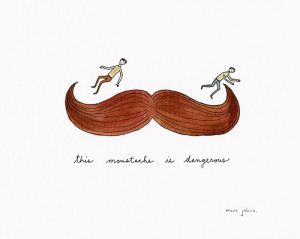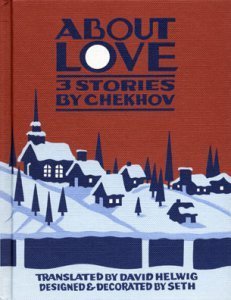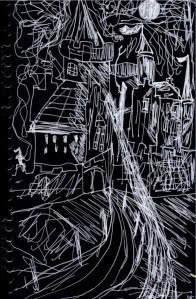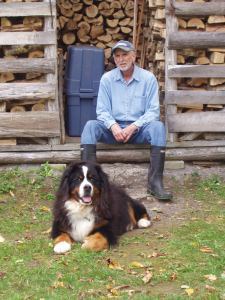Alex Boyd's Blog, page 10
November 12, 2012
Northern Poetry Review: Mark Lavorato
New to Northern Poetry Review:  Allison LaSorda reviews Wayward Wooden Floors by Mark Lavorato.
Allison LaSorda reviews Wayward Wooden Floors by Mark Lavorato.
Coming soon: Alessandro Porco reviews The Flower of Youth: Pier Paolo Pasolini Poems by Mary di Michele.


November 7, 2012
A final reading and a moustache
I’ll be doing a final reading from The Least Important Man as part of Pivot Readings at the Press Club,  a very cozy space at 850 Dundas St W, 8pm on Nov 21. That’s with other readers Victor Coleman, Kateri Lanthier, and James Matthews.
a very cozy space at 850 Dundas St W, 8pm on Nov 21. That’s with other readers Victor Coleman, Kateri Lanthier, and James Matthews.
Also, I’m once again on board the merry, hairy Movember train, if you’re able to make a donation.


October 6, 2012
Northern Poetry Review: Stuart Ross, Nyla Matuk
New to Northern Poetry Review: Alessandro Porco  looks at You Exist. Details Follow. by Stuart Ross.
looks at You Exist. Details Follow. by Stuart Ross.
We’re also updated with a poem by Nyla Matuk. Her collection Sumptuary Laws is new from Signal Editions / Vehicule Press.


September 26, 2012
Chekhov: More beautiful than ever
Last night I heard an animated reading by David  Helwig from About Love: Three Stories By Chekhov (Biblioasis) one of those books I immediately bought several times over, to have one for myself and one I can give as a gift. Helwig has provided a graceful translation of the stories, describing them as the only linked stories Chekhov wrote, and describing the book itself as one that feels like it was published around 1910 or 1920.
Helwig from About Love: Three Stories By Chekhov (Biblioasis) one of those books I immediately bought several times over, to have one for myself and one I can give as a gift. Helwig has provided a graceful translation of the stories, describing them as the only linked stories Chekhov wrote, and describing the book itself as one that feels like it was published around 1910 or 1920.
Illustrated throughout (or at the book says, “decorated”) by Seth with assorted scenes and characters, the scans of the cover online simply don’t do justice to it. Biblioasis always produces attractive books, but this particular slim hardcover is a little astonishing to have and hold.


September 15, 2012
One Question Interview: Matt Rader
Matt Rader is a writer and instructor, and the author of a number of acclaimed books of poems: Miraculous Hours (Nightwood, 2005), Living Things (Nightwood, 2008) and most recently (House of Anansi, 2011).
History plays an important role in your book. The last (and if I’m not mistaken, longest) poem ”History” is a remarkable set of images in the same blender: past and present, elegant and somewhat crude, etc. But throughout the book history appears to be embedded in the landscape, still present like an echo even if there are no particular physical signs. Could you elaborate on this? And given that many of these poems concern Canada, do you have a particular fascination with (and feeling about) Canadian history?
A very good teacher — one of the very best teachers I’ve ever had — told me that often enough the more one thinks about a topic the less there is to say about it. More specifically, the less there is to say that is true and not immediately shadowed by its opposite. This idea reminds in a way of Larkin’s lines for the  married couple in bed: “At this unique distance from isolation / It becomes still more difficult to find / Words at once true and kind, / Or not untrue and not unkind.” This is how I feel about the topic of history. Not that I don’t want to talk about it but rather than I’ve talked about it so much with myself that I have very little left to say.
married couple in bed: “At this unique distance from isolation / It becomes still more difficult to find / Words at once true and kind, / Or not untrue and not unkind.” This is how I feel about the topic of history. Not that I don’t want to talk about it but rather than I’ve talked about it so much with myself that I have very little left to say.
One answer to your general question is that I have a love for narrative and history is obviously a narrative. But more than that: narrative is always a history. Narrative, even when turned towards the future, is always about “what happened.” (This is the kind of statement my teacher warned me against — I believe it to be true but I can easily see how it is not true). I also have a mildly peculiar vision of history as beginning in the present and coming to an end wherever the narrative clues start to dissolve in the past. This perhaps arises from my lifelong experience with ghosts. Not the supernatural ghosts (though I don’t discount those exactly) but with the sense of being affected by the echo of past events. This is mostly associated with places. A simple example is when I find myself standing in a place that I stood in years before. I feel, in some way I can’t explain and don’t care to explain, the presence of my earlier self. The final poem, “History,” which you allude to, addresses this experience directly as does “The Latin for Hunger” and less directly “Music.” The Canadian piece has to do, very simply, with me being Canadian. If I was Irish I’d have written about Ireland I suspect.
But there’s a little more to the whole thing. When Larry Levis was asked if he viewed himself as a primarily elegiac poet, he said, “I often feel that’s what I am as a human.” Which is a sentiment I identify with. And thus perhaps it provides a second answer: an interest in history is a kind of tautology for a person with my disposition. But elegy is not really about the past so much as it is about addressing oneself. As Levis says, “[E]legies are self-reflexive, and they often point not to the figure gone but to the person writing them, and they are meant to reveal that mind, that nature.” This way of thinking seems to me in line with my sense about the direction of history which is really about the origin and purpose of meaning making in the narrative we call history. Levis and I could easily be charged with solipsism here and a bunch of other negative philosophical jargon … now I’m hearing O’Hara chiming in with Larkin — “but I hate all that crap.”


September 14, 2012
Northern Poetry Review: Shane Neilson on Marc Di Saverio
New to Northern Poetry Review,  Shane Neilson reviews Sanatorium Songs, the chapbook of poems by Marc Di Saverio from Cactus Press.
Shane Neilson reviews Sanatorium Songs, the chapbook of poems by Marc Di Saverio from Cactus Press.
Coming up, reviews of poetry books by Mark Lavorato, Mary Di Michele, and Stuart Ross.


September 13, 2012
Darin Yorston: When I Die
August 21, 2012
NPR update: Lisa Robertson interview
July 15, 2012
Northern Poetry Review: Sources
There’s something new at Northern Poetry Review. On the main page of the site you’ll find the start of a series called “Sources.” Rick Patrick provided a piece about the loss of a beloved dog as inspiration for a particular poem, and when I replied to say it could be the beginning of a new series on the motivations behind writing, his wife Bonnie Sallans suggested the name of the series.
And, presto. Simple as that. Sharp-eyed scrollers may notice it’s the only update to NPR right now, and I think that’s because I’m going to make a few changes: in short, more updates with less material. I’ve traditionally done something closer to a magazine format, waiting until I have five reviews or articles, but I recently found a non-mention of Northern Poetry Review over at a new review blog called The Urge troubling. It’s dispiriting to have no mention in an opening statement about online poetry reviewing in Canada (though it wasn’t malicious, I’m sure) when you’ve been maintaining a site for five years. I’ve done my best to encourage honest, diplomatically critical reviews. They haven’t stirred up hornet’s nests of comments and replies, but I’ve occasionally heard from people over the years about how they appreciated a careful look at their book, and I’m proud of the work people have done for the site, particularly the attention given to poets who deserve more.
So why wouldn’t we be on the radar? I’ve been giving it some thought, and I think in an age where many sites are updated daily — if not throughout the day — a few updates a year with a tidy little pile of stuff doesn’t quite work any longer. As a result, I’d like to announce the site will now be updated as frequently as possible. Consider this an invitation to check in regularly, as there are seven reviews in the works (four will be written by women) and an interview with Lisa Robertson is coming soon. I’d also like to take this opportunity to renew our call for submissions (email northernreview [at] gmail.com) and submissions will be posted faster, which is ultimately more satisfying for all concerned.
Finally, none of this is to suggest grumpy feelings towards The Urge or Stewart Cole who is taking the time and space to write thoughtful reviews (and dude, can I send you a copy of The Least Important Man?). In fact, I’ve posted the link both to provide an explanation and to encourage people to check out his blog. And really, I have Stuart to thank for a change to Northern Poetry Review that I believe will work quite well. The formality of a full, magazine-style update makes little sense when it’s all eventually pushed to the archives page, and this way every submission gets a front-page moment. See you in the glorious world of online reviewing.


May 24, 2012
Links: The Story So Far
“Author, promote thyself.” Particularly  when you have a new book. Recently, I’ve written something on the remarkably relevant Grapes of Wrath for the National Post book blog, as well as a Dirty Dozen interview with Open Book Toronto, and a brief article on film serials for 49thshelf.com, complete with footage from Zorro’s Fighting Legion (bonus!).
when you have a new book. Recently, I’ve written something on the remarkably relevant Grapes of Wrath for the National Post book blog, as well as a Dirty Dozen interview with Open Book Toronto, and a brief article on film serials for 49thshelf.com, complete with footage from Zorro’s Fighting Legion (bonus!).
If you’d care to sample the book, three poems can be found in the current Canadian Notes and Queries, and another as part of the Sunday Poem series over at the Vehicule Press blog.
Meanwhile, Jonathan Ball and Nick Thran have both taken a careful look at the book.

















